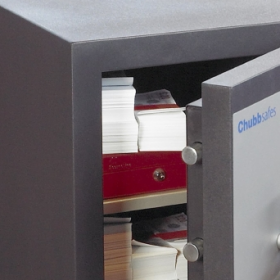About NOVIUS
Who we are
A companion providing support and consultations in matters related to the accurate interpretation and implementation of various legal provisions
The name of the law office NOVIUS is made up of the two words – NOVI and IUS, which in Latin mean TO KNOW THE LAW. A profound knowledge of law is at the basis of the successful operation of a law office, especially if it comes hand in hand with a professional perspective, responsible actions, confidential disposition and unique solutions. The main qualities of NOVIUS are professional activity, an honest and responsible attitude towards the client, and modern solutions. The law office has assembled professionals of the field with experience in jurisprudence to ensure high quality consultations and excellent results.
The law office’s main areas of activity are commercial law, contractual law, real estate related matters and various types of legal proceedings (civil, criminal and administrative cases). By specialising in certain areas, going into detail, having knowledge of the latest studies and experiences in the world, we have managed to find unconventional solutions and gain success. Our clients highly value this and recommend NOVIUS to their cooperation partners.
Why NOVIUS?
The law office NOVIUS is building its activity on truths that have been proven and have survived over the course of thousands of years. Traditional values alongside modern innovations, new and unique methods, work approach and relationship building skills allows us to achieve more lawful results. This is our road to a convincing and stable performance.
Every client is very special and unique to the law office NOVIUS, therefore we address each issue very individually. The law office NOVIUS does everything possible to give their clients useful consultations and solutions. We realise how important every person’s rights, options, truth and freedom are, therefore we are very responsible towards both facts and emotions and other external factors.
NOVIUS activity is orientated towards several important areas of law, ensuring services in the following groups of expertise:
– Administrative cases
– Construction
– Labour law
– Financial and bank law
– Family law
– Investment attraction to enterprises
– Legal and financial audit
– Commercial law
– Criminal cases
– Inheritance law
– Real estate
– AML/CFT
– Public procurements and PPP
– Restructuring and insolvency
– Settlement of disputes
– Merging and acquisition of enterprises
– Aviation law
– International law
Clients who choose NOVIUS services in the long term and recommend them to their cooperation partners, friends and family demonstrate the quality of the law office NOVIUS. It is a chance to trust in somebody and get comprehensive support from a law office. Therefore, enterprises and people who think about development and expect a convincing performance, choose NOVIUS.
Our vision

Professional perspective
Steady professional growth, studies and practical experience help to continuously increase the quality of our services.

Excellent result
Only by inquiring into the individual needs of each client is it possible to find a way to achieve an excellent result. And the result speaks for our professionalism.

Confidentiality
Confidence, discretion and trust allows us to create a reliable long-term cooperation with our clients, which we value very highly.

Responsibility
We are thankful for an environment and a society in which we can realise our ambitions, therefore we feel deep respect and a responsibility for preserving the environment.
Informējam Jūs, ka šajā tīmekļa vietnē tiek izmantotas sīkdatnes (cookies), lai iegūtu anonimizētu pārskatu par lietotāju aktivitātēm vietnē.
This site is using cookies to collect anonymised statistics about the user activity on the site.
Vairāk informācijas / More information
Sīkdatne jeb sīkfails (angļu: cookie — burt. 'cepums'), ir tīmekļa servera nosūtīta neliela teksta virkne klientam (parasti tīmekļa pārlūkprogrammai), kura tiek saglabāta lietotāja datorā kā parasta datne. Ar tās palīdzību serveris var identificēt lietotāju, pārbaudot klienta atsūtīto sīkdatni. Šis mehānisms tika ieviests tādēļ, ka pats HTTP protokols neuztur savienojuma stāvokli, un klienta katru jaunu pieprasījumu serveris uzskata par jaunu klientu.
Sīkdatņu mehānismu apraksta RFC 2965 (HTTP State Management Mechanism), kas iznāca 2000. gadā un nomainīja RFC 2109.
Visbiežāk sīkdatnes izmanto lietotāju autentifikācijai (lietotājam ievadot savu lietotājvārdu un paroli, serveris nosūta uz lietotāja datora unikālu teksta virkni, pēc kā vēlāk var noteikt, ka lietotājs ir pieslēdzies sistēmai), sesijas uzturēšanai, kā arī specifiskas informācijas saglabāšanai par lietotāju. Izmantojot sīkdatnes, lietotājs veido tīmekļa vietni atbilstoši savām vēlmēm un interesēm.
Kopš sīkdatņu ieviešanas daudzi interneta lietotāji ir noraizējušies par personiskās dzīves izsekošanu, jo ar sīkdatnēm var izsekot lietotāja veiktās darbības un ieradumus, kad tas veic tīmekļa lapu pārlūkošanu. Sakarā ar to vairākās valstīs (ASV, Eiropas Savienībā) ir pieņemti likumi, kas regulē sīkdatņu lietošanu. Bez tam sīkdatņu negatīvs aspekts ir slikta drošība, jo tās ne vienmēr var precīzi identificēt lietotāju (ja datoru izmanto vairāki lietotāji), tās var ļaunprātīgi pārtvert un izmainīt.
Sīkdatnes ir iespējams arī nobloķēt, bet, tiklīdz tas ir izdarīts, var rasties problēmas, jo var nestrādāt kāda no tīmekļa vietnes piedāvātajām funkcijām vai pat liegta piekļuve pie tās. Dažādām pārlūkprogrammām ir atšķirīgi veidi, kā nobloķēt sīkdatnes. Sīkdatnes, kā jebkuru failu, ir iespējams arī izdzēst, bet tas nozīmē, ka uz sīkdatņu pamata veiktie iestatījumi netiks saglabāti.
An HTTP cookie (also called web cookie, Internet cookie, browser cookie, or simply cookie) is a small piece of data sent from a website and stored on the user's computer by the user's web browser while the user is browsing. Cookies were designed to be a reliable mechanism for websites to remember stateful information (such as items added in the shopping cart in an online store) or to record the user's browsing activity (including clicking particular buttons, logging in, or recording which pages were visited in the past). They can also be used to remember arbitrary pieces of information that the user previously entered into form fields such as names, addresses, passwords, and credit card numbers.

